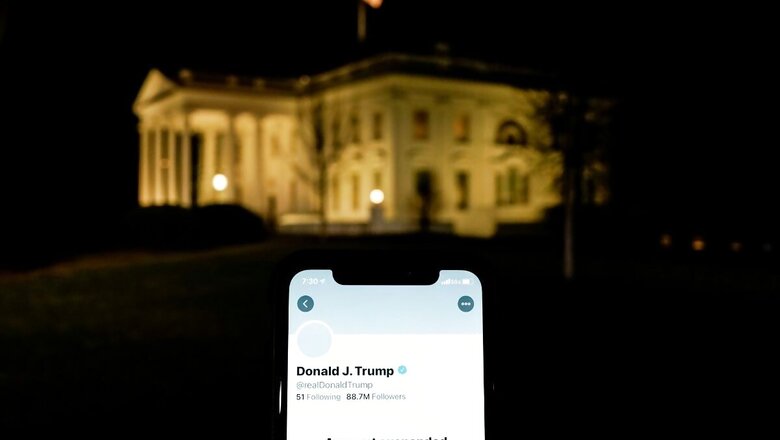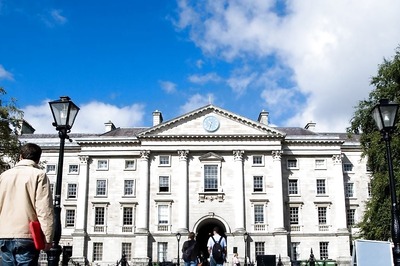
views
Social media networks Twitter and Facebook have finally done what many had been calling for months, if not years. That is, ban the now-outgoing US president Donald Trump from social media. Twitter has finally banned Donald Trump’s Twitter account, and indeed when he tried to circumvent the ban with other accounts, two of those got detected and had tweets deleted–@POTUS and @TeamTrump. Facebook meanwhile has said that it is making Trump’s ban on Facebook and Instagram indefinite. But why did it take so long for Facebook and Twitter to act, just as the presidency term for Trump is in its last leg with just a few more days remaining for Trump in the White House.
Over the last few years, time and again, Facebook and Twitter have particularly been at the receiving end of criticism for giving Donald Trump and his views platform, free to use as he pleased. We may not have to go too long into the past to understand how these big tech companies, now trying to get good PR by de-platforming Donald Trump, are very much a part of the problem. The first real cursory move that Twitter made against Trump, hoping to garner some love and support, was back in June 2020 when the protests in the US cities were peaking after the absolutely shocking video of 46-year-old Minnesota resident George Floyd’s death by the police, led to angry reactions.
n the tweet that Twitter took semi-hid behind a public notice, Trump wrote the line, “when the looting starts, the shooting starts.” There’s a historical significance attached to that phrase. In December 1967, violence had broken out during the Republican National Convention in Miami. The then Miami Police Chief Walter Headley had reportedly said “when the looting starts, the shooting starts”. He introduced a “get tough” policing policy that involved the use of shotguns, dogs, and aggressive “stop and frisk” tactics in black neighborhoods in an attempt to reduce the crime rate. The New York Times quoted him at the time, saying, “We don’t mind being accused of police brutality.”
Before you paint Twitter as the savior of all things humanity with a newly found conscience, the good fighting the evil and what not, let us drive down the memory lane to see how Twitter has chosen to deploy a completely different policy to such tweets by “world leaders”. In early 2018, Twitter had taken pains to explain that “Blocking a world leader from Twitter or removing their controversial Tweets would hide important information people should be able to see and debate. It would also not silence that leader, but it would certainly hamper necessary discussion around their words and actions.” It had also cited global, public conversation. In 2019, Twitter said that they would label tweets from politicians that break the community guidelines, but still leave them available for viewing. And followed through on it steadfastly, till now.
Trump, in the meantime, has pretty much gone to war with anyone who has disagreed with him, using Twitter as his megaphone. He has mocked people, he has shared what can be lightly put as his version of facts, he has attacked individuals and establishments and pretty much gauged public opinion with his tweets. The thing is, you cannot probably hold that against Trump, or any world leader—Twitter gave him that platform and he used it. Twitter has so-called community and content policies for the rest of us but decided that world leaders are above the law.
Like Twitter, Facebook has also very much been a part of the problem. In 2016, Facebook announced a policy which said their content moderation would allow newsworthy posts to remain visible, even if they violate the content standards. “In the weeks ahead, we’re going to begin allowing more items that people find newsworthy, significant, or important to the public interest — even if they might otherwise violate our standards,” Joel Kaplan, VP of Global Public Policy at Facebook, had said in an official post at the time. While this was packaged around the controversy of removing a photo of historical significance, it gave Facebook enough cover to not apply strict rules to Trump and posts made by Trump supporters.
The Washington Post had chronicled how Facebook had started to alter its personality to better suit the Donald Trump agenda, since the time he was a candidate for the presidency. Trump had then posted something that said people of a certain religion should be banned from entering the United States of America. Facebook employees wanted that post taken down, Facebook executives believed the post didn’t violate any content policies, which allow government figures to post about the use of force or strict measures.
Facebook had talked tough from time to time. “I know many people are upset that we’ve left the President’s posts up, but our position is that we should enable as much expression as possible unless it will cause imminent risk of specific harms or dangers spelled out in clear policies,” said Mark Zuckerberg, during the #BlackLivesProtest and further went on to say, “Although the post had a troubling historical reference, we decided to leave it up because the National Guard references meant we read it as a warning about state action, and we think people need to know if the government is planning to deploy force. Our policy around incitement of violence allows discussion around state use of force, although I think today’s situation raises important questions about what potential limits of that discussion should be.”
But this is the same Zuckerberg who has also said that Facebook would rather “err on the side of greater expression” and defend free speech while speaking at Georgetown in 2019. And then in May 2020 when Twitter did a till then rare fact-check of one of Donald Trump’s tweets, Mark Zuckerberg in an interview with Fox News said that social media platforms should not try to become arbiter of truth.” This makes one wonder—is the currently in force de-platforming of Donald Trump from Facebook and Instagram anything more than a PR exercise, because other social media and web platforms have finally taken a stance?
One wonders, what happens to the stance the social media firms are taking, akin to baby steps, if Trump announces himself as a candidate for the 2024 presidential race.
Read all the Latest News, Breaking News and Coronavirus News here



















Comments
0 comment